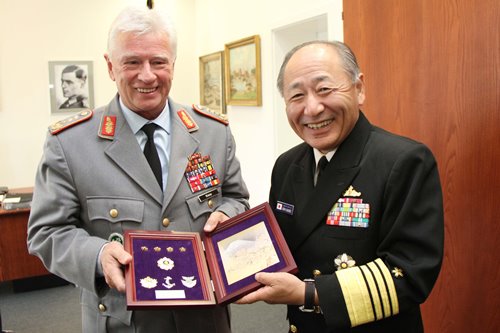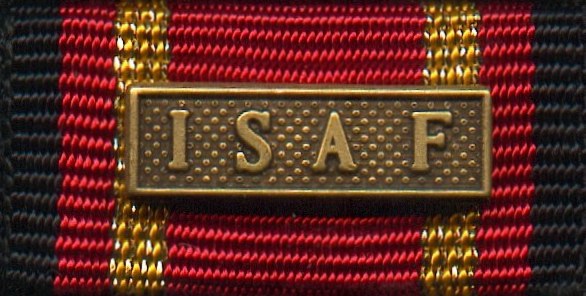1. Early Life and Education
1.1. Birth and Childhood
Volker Wieker was born on March 1, 1954, in Delmenhorst, Lower Saxony, then part of West Germany.
1.2. Education and Training
Wieker joined the Bundeswehr, the German armed forces, in July 1974, embarking on officer training within the army's artillery branch. He pursued higher education at the Bundeswehr University of Munich, where he specialized in geodesy. Following his studies, he served as an officer in an armored artillery battalion in Wildeshausen, gaining initial unit command experience as a platoon and company commander in the 315th Self-Propelled Artillery Battalion.
His advanced military education included General Staff training at the Führungsakademie der Bundeswehr in Hamburg, which he attended from October 1987 to September 1989 as part of the 30th class. Subsequently, he completed the US Army's Command and General Staff Officer Course at Fort Leavenworth, Kansas, further broadening his strategic and operational expertise.
2. Military Career
Volker Wieker's military career spanned over four decades, marked by a steady ascent through various command and staff positions, culminating in his appointment as the Chief of Staff of the Bundeswehr. His extensive experience included significant roles in the Federal Ministry of Defence and multiple international deployments, reflecting his deep engagement with Germany's evolving defense policy and global military commitments.
2.1. Early Military Service and Deployments
Upon his return to Germany from the United States, Wieker was assigned as the operations staff officer of the 21st Armored Brigade in Augustdorf. From 1993 to 1996, he commanded the 215th Self-Propelled Artillery Battalion. His first major international deployment came between 1996 and 1997, when he served as the operations and training officer for the German Army Contingent of the IFOR (Implementation Force) in Bosnia-Herzegovina, a multinational peacekeeping force established following the Bosnian War.
2.2. Ministry of Defence and Brigade Command
After his deployment in Bosnia, Wieker was assigned to the Federal Ministry of Defence (Germany) in Bonn. From 1997 to 1999, he served as the Military Assistant to the Federal Minister of Defence, working under both Volker Rühe and Rudolf Scharping. During this period, he also led a ministerial task force focused on the future force structure of the German Army, specifically a reorganization research group within the Army Staff. In September 1999, Wieker was promoted to Brigadier General and took command of the 40th Armored Infantry Brigade in Schwerin. He remained in this command until September 2002, when the brigade was disbanded as part of a broader Bundeswehr reorganization.
2.3. International Deployments and Corps Command
From May to December 2001, Wieker undertook another significant international deployment to Kosovo, where he served as the Commander of Multinational Brigade South and concurrently as the Commander of the 3rd German KFOR contingent. In 2002, he was appointed Chief of Staff of the Army Office in Cologne. His responsibilities further expanded in March 2004, when he was promoted to Major General and became the Chief of Staff in the Army Staff. In September 2007, he served as the acting commander of the 1st German/Dutch Corps. In July 2008, he was promoted to Lieutenant General and formally appointed as the commander of the same multinational corps in Münster. His final international assignment before becoming Chief of Staff was from October 9, 2009, when he served as the Chief of Staff of ISAF in Kabul, Afghanistan.
2.4. Chief of Staff of the Bundeswehr (Generalinspekteur)
On December 18, 2009, German Minister of Defence Karl-Theodor zu Guttenberg announced his intention to appoint Wieker as the new Chief of Staff (Generalinspekteur, lit. Inspector General) of the Bundeswehr. This appointment came in the controversial wake of the resignation of his predecessor, Wolfgang Schneiderhan, who stepped down due to a scandal involving a false report to the Bundestag concerning an airstrike in Afghanistan.

Wieker was promoted to the rank of General (a four-star general) on January 19, 2010, and formally assumed the position as the 15th Chief of Staff of the Bundeswehr two days later. Upon taking office, he immediately voiced strong criticism regarding systemic flaws within the Bundeswehr's military procurement system, calling for urgent reforms to ensure that the armed forces were adequately equipped and that public funds were utilized responsibly. His initial term was extended multiple times, with the Ministry of Defence announcing extensions in March 2016 and March 2017, effectively prolonging his service until early 2018. This made Wieker the longest-serving Chief of Staff in the history of the Bundeswehr, surpassing the tenure of his predecessors.
3. Personal Life
Volker Wieker is married to Sabine Wieker, and they have two children.
4. Awards and Decorations
Throughout his distinguished military career, Volker Wieker received numerous national and international awards and decorations, recognizing his service and leadership. These include:
- Commander's Cross of the Order of Merit of the Federal Republic of Germany (2014)
- Badge of Honour of the Bundeswehr in Gold (1999)

German Armed Forces Deployment Medal for IFOR (1996)

German Armed Forces Deployment Medal for KFOR (2001)

German Armed Forces Deployment Medal for ISAF (2010)

German Sports Badge in Gold
NATO Medal, Yugoslavia (1996)
NATO Medal, Kosovo (2001)
NATO Medal, ISAF (2010)
- Order For Military Merit (Bulgaria) (2001)
Commander with Star of the Order of Merit of the Republic of Hungary (2015)
Grand Cross of the Royal Swedish Order of the Polar Star (2013)
Royal Norwegian Order of Merit - Commander with Star (2012)

Legion of Merit (United States, 2010)

Decoration of Merit in Gold (Netherlands, 2011)
- Grand Decoration of Honour in Silver with Star for Services to the Republic of Austria (2015)
- Commander Legion of Merit (United States, 2015)
- Commander of the Legion of Honour (France, 2016)
- Order of Orange-Nassau, Grade: Grand Officer (Netherlands, 2017)

Order of Merit of the Italian Republic, Grade: Grand Officer (Italy, 2017)
- Joint Commendation Medal (Italy, 2017)
- Cross of Commander of the Order for Merits to Lithuania (Lithuania, 2018)
5. Retirement
Volker Wieker retired from active military service on April 18, 2018, concluding a career that spanned over 44 years.
6. Assessment and Controversies
Volker Wieker's long and impactful career, particularly his tenure as Chief of Staff, garnered both commendation for his steady leadership during a period of significant change and scrutiny regarding the challenges faced by the Bundeswehr, reflecting broader discussions about military reform and accountability.
6.1. Positive Assessment
Wieker is widely recognized for his extensive operational experience, having participated in every major foreign deployment of the Bundeswehr since 1996. His leadership was particularly noted during his command of the 1st German/Dutch Corps and as Chief of Staff of ISAF in Afghanistan, where he oversaw complex multinational operations. His record-breaking tenure as Chief of Staff, extended multiple times, underscores the trust placed in his leadership and his ability to navigate the complexities of modern military command.
6.2. Criticism and Controversies
Wieker's appointment as Chief of Staff in 2010 occurred in a politically sensitive environment, directly succeeding Wolfgang Schneiderhan, who resigned amidst controversy over a misleading report to the Bundestag concerning a civilian casualty incident during an airstrike in Afghanistan. This context immediately placed Wieker's leadership under intense public and political scrutiny regarding military transparency and accountability.
Upon assuming his role, Wieker himself became a prominent critic of the Bundeswehr's military procurement system. He publicly highlighted significant deficiencies and inefficiencies in the acquisition of military equipment, calling for urgent reforms to ensure that the armed forces were adequately equipped and that public funds were utilized responsibly. This criticism, coming from the highest-ranking officer, underscored systemic issues within the defense apparatus and resonated with public concerns about military spending and effectiveness.
7. Impact
Volker Wieker's extensive career, culminating in his role as the Chief of Staff of the Bundeswehr, had a profound impact on the German Federal Armed Forces. His leadership was instrumental during a period of significant transformation for the Bundeswehr, as it transitioned from a Cold War-era defense force to one increasingly engaged in international crisis management and expeditionary operations.
His direct involvement in major international deployments in Bosnia, Kosovo, and Afghanistan shaped the Bundeswehr's operational capabilities and its approach to multinational cooperation. As Chief of Staff, he was a key figure in advocating for necessary reforms in military procurement, pushing for greater efficiency and modernization to ensure the Bundeswehr remained capable and accountable. His long tenure provided continuity and stability during a time of evolving security challenges, solidifying Germany's role in international security architectures and influencing public discourse on the military's societal role and responsibilities.





